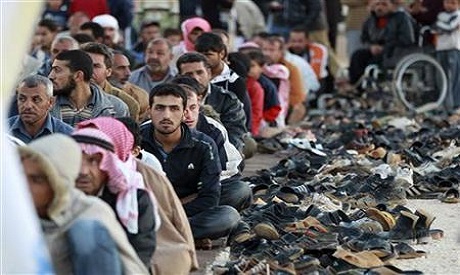Imagine hearing that your favourite athlete had drowned after being stuffed in the hull of a ship in order to avoid authorities and cross a treacherous body of water. Their goal in this alternative universe was to flee violence as well as earn enough to support their families.
That is exactly what happened to the goalkeeper for the Gambian national women’s football team, Fatim Jawara.



 Refugees in Jordan.
The six richest countries in the world, who make up almost 60% of the world’s economy, are hosting less than 9% of the total number of refugees in the world, a July 18 report by British charity Oxfam found.
The analysis showed that the United States, Germany, France, China, Japan and Britain, which together make up 56.6% of the global gross national product, host just 2.1 million refugees combined.
Refugees in Jordan.
The six richest countries in the world, who make up almost 60% of the world’s economy, are hosting less than 9% of the total number of refugees in the world, a July 18 report by British charity Oxfam found.
The analysis showed that the United States, Germany, France, China, Japan and Britain, which together make up 56.6% of the global gross national product, host just 2.1 million refugees combined.
 Zaatari refugee camp, Jordan. There are an estimated 1,400,000 Syrian refugees in Jordan.
Tragic photos and videos of masses of asylum seekers and immigrants from the Middle East and Africa have recently shocked the world. But these ordeals have been going on for a long time.
Zaatari refugee camp, Jordan. There are an estimated 1,400,000 Syrian refugees in Jordan.
Tragic photos and videos of masses of asylum seekers and immigrants from the Middle East and Africa have recently shocked the world. But these ordeals have been going on for a long time.